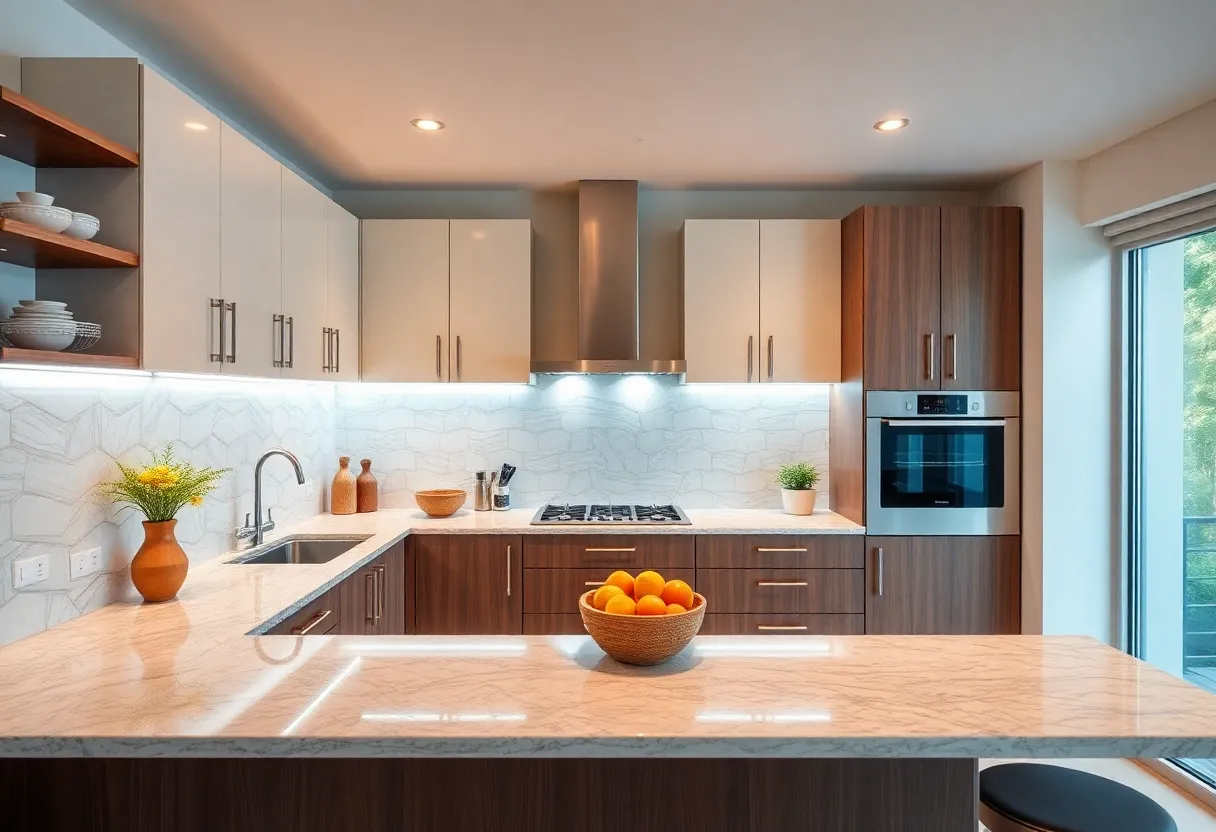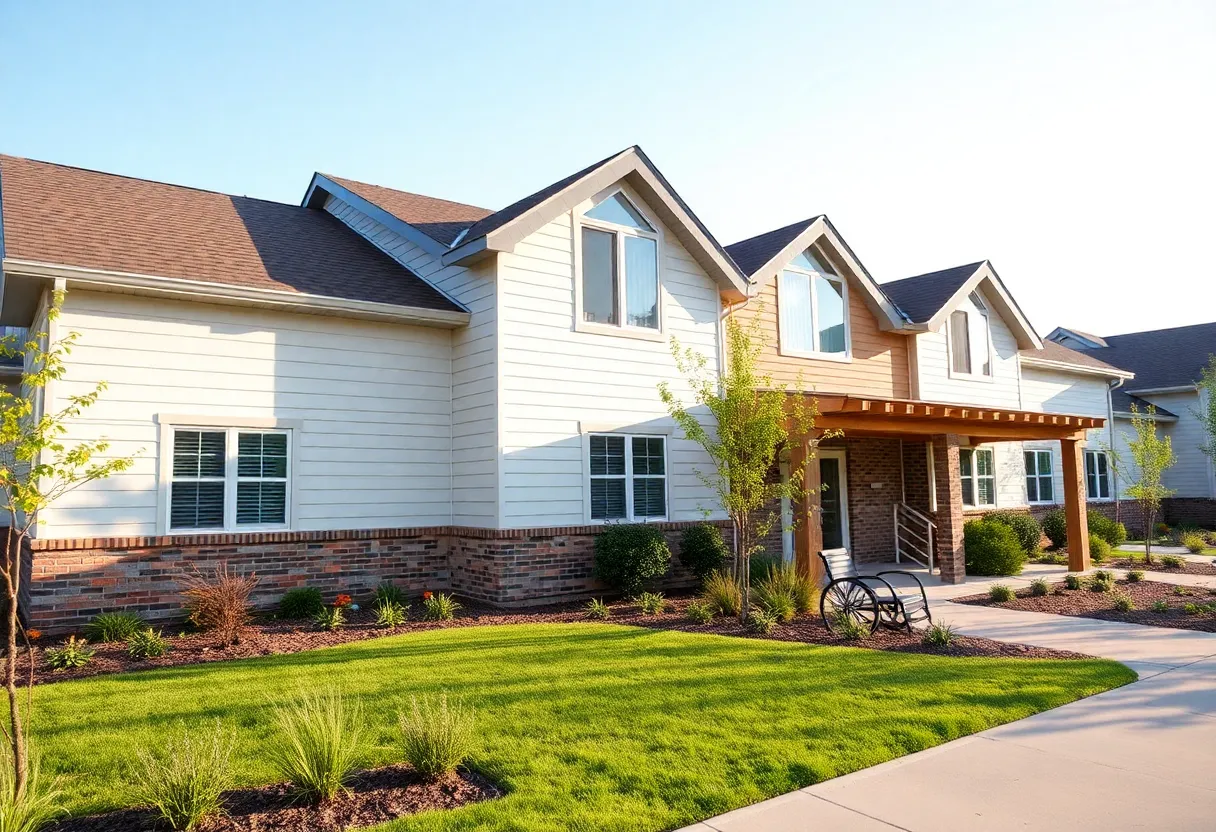How to Remodel a Kitchen: A Comprehensive Guide to Planning and Execution
Remodeling a kitchen is a significant investment that requires meticulous planning and execution. This comprehensive guide outlines the essential steps needed to ensure a successful kitchen remodel. From initial considerations to final touches, this guide focuses on how to remodel a kitchen efficiently and effectively.
1. Assess Your Needs and Goals
The first step in how to remodel a kitchen is to assess your needs and goals. Determine what is driving the remodel. Are you seeking improved functionality, enhanced aesthetics, or increased property value? Take the time to reflect on how you use your kitchen daily. Identifying key pain points will help shape the remodel.
Identify Your Priorities
Make a list of must-have features. Maybe you need more counter space or want to add an island. Consider the size, layout, and flow of the kitchen. Being clear on your priorities will guide your decisions in following stages.
Consider Your Budget
Establish a realistic budget early on. This budget should encompass everything from materials to labor costs. Keep in mind that unforeseen expenses often arise during remodeling projects. A buffer of approximately 10-20% of your total budget is wise.
2. Design Planning
Once you have assessed your needs, it’s time to move onto the design phase, a critical step in how to remodel a kitchen. This involves creating or selecting a layout that suits your established priorities.
Choose a Layout
The layout greatly influences the functionality of your kitchen. Popular kitchen layouts include:
- U-Shape: Ideal for larger spaces. Offers ample storage and counter space.
- L-Shape: Versatile and efficient for both cooking and socializing.
- Galley: Perfect for narrow spaces. Maximizes efficiency without requiring excess space.
- Island: Adds both beauty and utility by offering additional prep space.
Visual Aesthetics
Design aesthetics play a vital role in a kitchen remodel. Consider the color scheme, materials, and fixtures that reflect your style. Neutral palettes provide versatility, while bold colors can make a statement.
Utilize Technology
Many homeowners are now using design software to visualize their ideas. Programs like SketchUp or Home Designer Suite allow for 3D modeling, giving a clearer sense of how the finished space will appear.
3. Gather Necessary Permits
Before any physical changes commence, investigate local building codes and regulations. Most remodeling projects require permits. Understanding this step will facilitate a smoother execution phase. Check with local authorities or consult a contractor, ensuring all necessary permits are acquired.
4. Choose Quality Materials
Material selection is critical during a kitchen remodel. Quality materials not only enhance aesthetics but also ensure longevity.
Cabinets
Cabinets are often the focal point of a kitchen. Choose materials that balance durability and style. Wood, plywood, and engineered wood are popular options. Custom cabinetry can enhance functional aesthetics, but stock cabinets can provide budget-friendly alternatives.
Countertops
Recommended materials for countertops include granite, quartz, and butcher block. Each option brings unique benefits. Granite offers natural beauty, while quartz is known for its durability and low maintenance.
Flooring
Kitchen flooring should withstand high foot traffic and spills. Consider tile, hardwood, or vinyl, taking into account budget and aesthetic preference. For added comfort underfoot, consider incorporating rugs or mats.
5. Hire the Right Professionals
As you navigate how to remodel a kitchen, consider hiring professionals for specific tasks. While DIY can save money, the expertise of skilled labor can also prevent costly mistakes.
Find Contractors
When selecting a contractor, gather multiple bids and verify credentials. Check references and review past projects to evaluate their experience and quality of work.
Specialists
In addition to general contractors, consider hiring specialists such as electricians, plumbers, and interior designers. Their expertise can help streamline the process and ensure compliance with safety standards.
6. Demolition Phase
Demolition should be approached carefully. Depending on the extent of the remodel, you may need to remove cabinets, countertops, and appliances. Use care to minimize damage to existing structures.
Safety Measures
Safety should be a priority during demolition. Use protective gear such as gloves, goggles, and masks. Ensure the areas are cleared of hazardous materials and debris.
Waste Management
Consider a waste management plan. Renting a dumpster can simplify disposal. Always adhere to regulations regarding disposal of materials.
7. Renovation Phase
After demolition, the renovation can commence. This phase involves installation of all essential elements, delivering on the plans established earlier.
Electrical and Plumbing Work
A licensed electrician and plumber will address all wiring and pipe installations. This is critical work that must be conducted correctly to avoid future issues.
Cabinet and Countertop Installation
Once plumbing and electrical systems are in place, cabinets and countertops are installed. Pay attention to leveling and proper alignment.
Flooring Installation
Install flooring last, as it can be damaged by heavy installation activities. Depending on the material chosen, follow manufacturer guidelines for installation.
8. Finishing Touches
The final phase of how to remodel a kitchen involves adding the finishing touches that enhance both functionality and aesthetics.
Lighting Fixtures
Lighting significantly impacts the kitchen ambiance. Incorporate task lighting, ambient lighting, and accent lighting to achieve a well-lit workspace.
Backsplashes and Paint
Backsplashes add visual appeal and protect walls from stains. Choose materials that complement your overall kitchen design. Painting walls in complementary colors can also enhance aesthetic flow.
Appliances and Accessories
Choose appliances that fit seamlessly into your design. Pay attention to energy efficiency ratings. Incorporate accessories like cabinet hardware and sink fixtures that align with your style.
9. Final Steps
After installation is complete, conduct a thorough inspection. Ensure that all work meets your expectations and is free from defects. Address any concerns with your contractors promptly.
Cleaning and Maintenance
Once the remodel is complete, a deep clean is essential. This not only enhances the appearance but also ensures a fresh start. Lastly, establish a maintenance routine for the longevity of your remodeled kitchen.
Conclusion
Remodeling a kitchen is a complex but rewarding task. By following these comprehensive steps on how to remodel a kitchen, homeowners can create a functional and beautiful space tailored to their needs. From assessment to execution, careful planning and attention to detail are paramount. A successfully remodeled kitchen can provide lasting satisfaction and value to your home.









